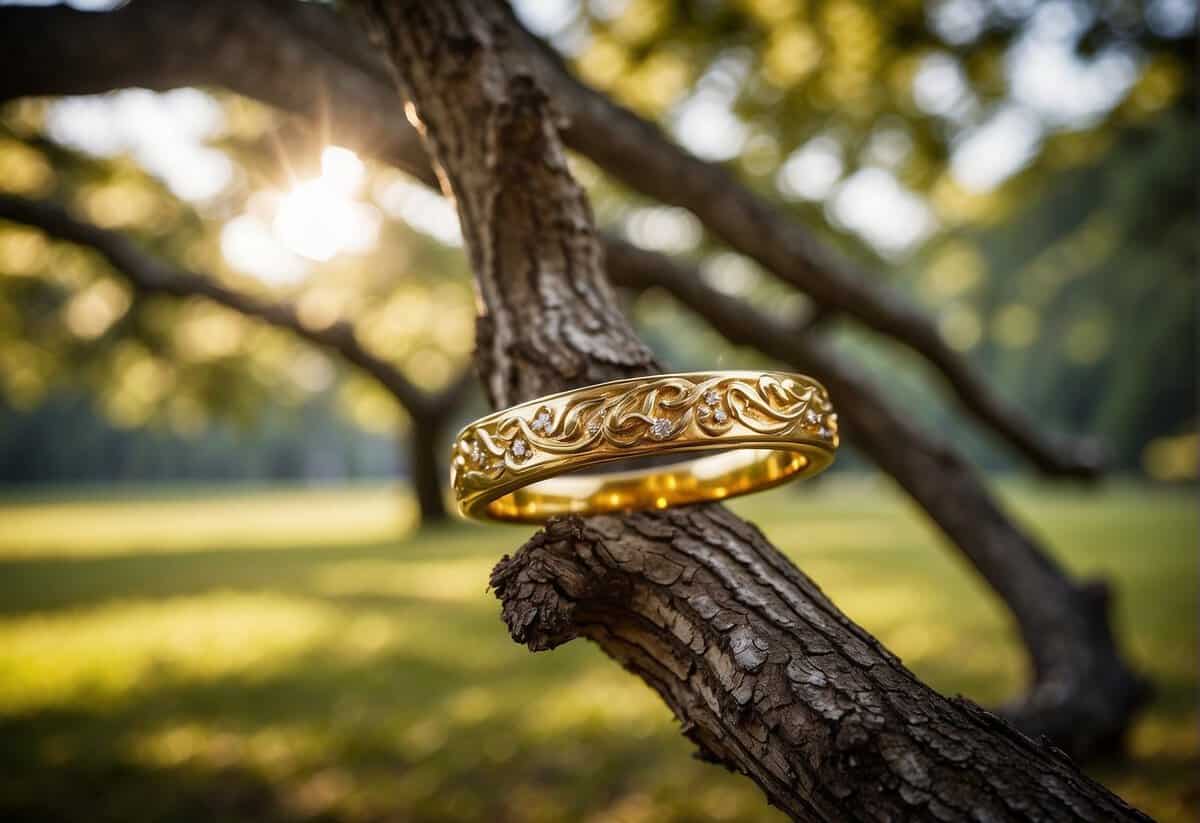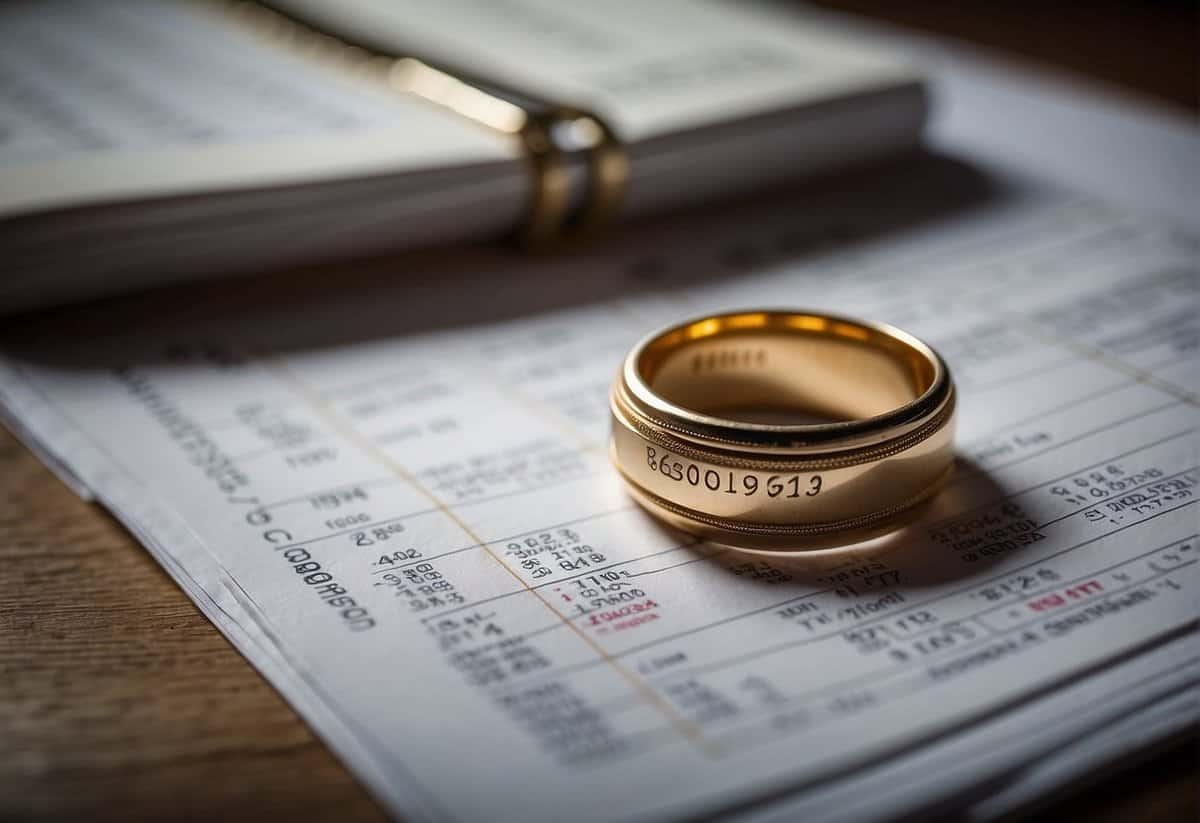Can You Be Married for 100 Years? Secrets to a Century of Love
Marrying someone is a commitment that spans an indefinite period – usually envisioned as a lifetime. But have you ever wondered if it’s possible to be married for 100 years? In theory, if both partners live long enough, they could celebrate a century’s worth of anniversaries together. Realistically, though, it’s a rare occurrence, given human lifespans and other intervening factors. Yet, some couples come close, marking incredibly long unions that speak to enduring love, shared experiences, and often, a good bit of fortune when it comes to health and longevity.

The concept of a 100-year marriage also brings to the forefront interesting considerations regarding social security and financial planning. Many couples may not realize how a long-lasting marriage can impact their financial future, including retirement benefits and the management of joint assets. Emotionally and legally, the implications are profound, highlighting the importance of mutual support and clear communication over such an extended period.
Key Takeaways
- Celebrating 100 years of marriage is rare and depends on good health and longevity.
- Long marriages have significant financial and social security implications.
- Emotional support and legal considerations are crucial in lengthy unions.
The Fundamentals of Marriage and Social Security

When considering the intersection of marriage and Social Security, it’s crucial to understand how marriage length may influence retirement benefits and the role age plays in determining eligibility for spousal benefits.
Marriage and Longevity
If you aspire to be married for 100 years, it’s not just a test of the bond between you and your spouse; it’s also a journey through numerous legal and financial landscapes. Your marriage length is significant when it comes to Social Security benefits. For instance, should you decide to draw on your spouse’s retirement benefits, you must have been married for at least one year. This criterion ensures that spouses can support each other financially in retirement.
Social Security and Marriage
Understanding Social Security and marriage is essential, especially when planning for retirement. Here’s what you need to know:
- Eligibility: To be eligible for spousal benefits, you or your spouse must be at least 62 years old or caring for a child who qualifies for benefits.
- Benefits: As a spouse, you could receive up to 50% of your partner’s full retirement age benefit. This calculation is contingent on your spouse having started receiving Social Security retirement or disability benefits.
- Full Retirement Age: Depending on your birth year, the Social Security Administration defines your full retirement age as between 66 and 67. Claiming benefits before this age will reduce the monthly amount you receive.
- Age Requirements: Lastly, age plays a critical role in how much you can benefit from Social Security. Waiting to claim until you reach full retirement age can increase your monthly spousal benefit amount.
By staying informed about these key aspects, you can better navigate the waters of Social Security as they relate to your marriage.
Financial Implications of a Century-Long Union
When you’re married for an extended time, especially reaching a century, understanding the interplay of benefits and how income sources are affected in various scenarios becomes critical for your financial health.

Understanding Benefits and Retirement Income
Marriage can significantly impact your retirement income. Your earnings and your spouse’s earnings can affect the Social Security benefits (SSI) you’re both eligible for. As a couple, you have the opportunity to maximize your retirement benefits by coordinating when and how you choose to receive them. For instance, if you are retired and have a disabled spouse, your spouse might qualify for spouse’s benefits based on your earnings record.
However, if your spouse receives benefits before full retirement age, those benefits may be a reduced benefit amount. It’s paramount to plan strategically because the age at which you and your spouse decide to retire can amplify your retirement income. Always keep track of your respective earnings records, as these will form the basis of your benefits calculation.
Navigating Divorce and Survivor Scenarios
In the unfortunate event of divorce, financial considerations become complex. If you’ve been married for at least 10 years and then divorce, you could be eligible for divorced spouse benefits based on your ex-spouse’s earning record. This can provide a vital source of income, especially if your own earnings record results in lower benefits.
On the other hand, should you outlive your spouse, as a widow or widower, you could be entitled to survivor benefits. These benefits are typically a percentage of your deceased spouse’s benefit, provided they worked long enough to qualify for Social Security. The exact percentage can range, depending on your age and the type of survivor benefits you receive. It’s advisable to report these changes promptly and update your plans to ensure continuous financial stability.
Legal and Emotional Considerations Over Time

As you embark on the journey of a century-long marriage, it’s important to understand how your emotional connection and legal standing with each other will evolve. Your dedication to caring and love, alongside ensuring a sturdy legal framework, can greatly influence the quality and security of your shared life.
Emotional Bonds and Caring for Each Other
In a marriage that spans decades, your emotional bonds are the bedrock of your relationship. It’s natural for love and caring to mature, turning initially passionate feelings into a deep-seated sense of companionship. Actively nurturing this bond through the arts, shared hobbies, or simply enjoying the comfort of your shared home keeps the emotional connection alive.
Over time, you may also find that your roles in caring for each other evolve, especially if one of you faces a medical condition. This is where mutual support, possibly extending to include disability insurance or social security disability insurance (SSDI), becomes crucial in safeguarding your partner’s wellbeing.
Legal Framework and Protections
Legally, being married for a long duration solidifies various protections related to property and assets. When you tie the knot, your marriage certificate acts as a gateway to legal benefits, including entitlements to property and home ownership rights.
As a married individual, if you become unmarried through divorce or loss of a spouse, the legal landscape shifts significantly. For example, inheritance claims among relatives or the division of marital property could come into play. It’s wise to be informed about topics like social security benefits that one partner may receive upon the other’s disability or death.
Remember, staying informed and preparing for these possibilities is not pessimistic but a practical act of caring for your spouse and the life you’ve built together.
Maximizing Social Security Benefits in Long Marriages

When you’ve been in a marriage that spans decades, understanding how to get the most out of your Social Security benefits can be critical for your retirement. Timing, work history, and knowing your entitlements can play a substantial role in maximizing what you receive.
Strategies for Couples
Your decisions about Social Security can significantly impact the retirement benefits you and your spouse may collect, especially in a long marriage. Some couples consider a split strategy, where one of you claims benefits earlier while the other waits until reaching 70 to maximize the delayed retirement credits. Your strategy might be shaped by the desire to augment your savings or to accommodate unexpected life events, like a disability. Importantly, if you’re divorced but the marriage lasted at least 10 years, you could still be eligible for spousal benefits.
- Wait to Claim: Delaying benefits until age 70 can result in a higher monthly payment for both of you if you both have substantial work histories.
- Claim Spousal Benefits: One spouse can claim spousal benefits on the other’s record if it results in a higher payment than their own benefit.
Keep in mind special exceptions for couples, such as:
- Surviving Spouse: If your spouse passes away, you could receive their benefit amount if it’s larger than your own.
- Divorced Spouse: Even after divorce, you might be entitled to benefits based on your ex-spouse’s work record.
Impact of Work History and Other Factors
Your work history is a key determinant in the Social Security retirement benefits you are entitled to; however, your spouse’s work record might also benefit you. If your own work history is limited or your earnings were significantly less than your spouse’s, you may receive a higher benefit amount by claiming the spousal social security benefit.
- Own Work History: Your benefit is based on your 35 highest-earning years.
- Spousal Benefit: You can claim up to 50% of your spouse’s retirement benefit at their full retirement age if it’s more than your own benefit.
The decision of when to file for Social Security can be tricky but knowing these factors can lead to better-informed choices that optimize your combined benefits over the course of your retirement.
Frequently Asked Questions

Exploring the extremes of marital longevity can be quite intriguing. Here, you’ll find records and facts about couples whose marriages have lasted exceptionally long periods of time.
What’s the longest marriage ever recorded?
The longest marriage recorded is that of Herbert and Zelmyra Fisher, who were married for 86 years and 290 days, until Herbert’s passing in 2011.
How long were Karam and Kartari Chand married?
Karam and Kartari Chand, a British couple, were married for 90 years and 291 days, holding the record for the longest marriage for a living couple until Karam passed away in 2016.
Are there any records of a couple celebrating a 100-year wedding anniversary?
While there are no verified records of a couple celebrating a 100-year wedding anniversary, the concept isn’t beyond the realm of possibility, especially with increasing life expectancies.
What is the Guinness World Record for the longest married couple?
The Guinness World Record for the longest marriage goes to the aforementioned Herbert and Zelmyra Fisher.
Is it possible for a marriage to last more than 90 years?
Yes, it is possible for a marriage to last more than 90 years, as evidenced by couples like Karam and Kartari Chand, though such instances are remarkably rare.
Which long-duration marriage holds the record for ending in divorce?
The longest marriage that ended in divorce was between a couple who were married for 77 years before separating, though such cases are far less commonly documented than those of long-lasting unions.
